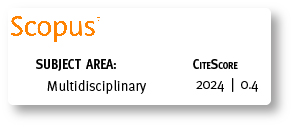Exploring faculty reading and research behaviors in a public and a private university: Case-study Cuenca, Ecuador
DOI:
https://doi.org/10.18537/mskn.05.02.02Keywords:
faculty reading, research behaviors, exploratory investigation, research and publication productivityAbstract
In light of recent changes in Ecuador’s higher education system that are aimed at enhancing the universities’ academic performance and thereby their ability to help address the country’s socio-economic problems and contribute to the country’s growth, this article reports on a study that investigated the research and reading behaviors of faculty members in a private and a public university in Cuenca, Ecuador. An analysis of the self-reported reading and research behaviors of 129 professors in both universities revealed that professors are poorly prepared to conduct research and are even less familiar with publishing its results in peer reviewed journals. Hardly any differences in faculty reading and research behaviors were observed between both universities. Additionally, no significant differences in research productivity were detected between those professors who held graduate degrees and those who did not. The article concludes that greater research and publication expectations need to be placed on professors with advanced degrees, in particular those holding doctoral degrees. The latter should take on leadership roles in the universities’ research efforts. However, to make this happen Ecuador’s universities need to take steps to reduce faculty involvement in teaching, provide adequate resources and create an infrastructure that is truly conducive to research growth. This process will be further enhanced if a reward system for research and publication is in place.
Downloads
Metrics
References
Bellas, M., R. Toutkoushian, 1999. Faculty time allocation and research productivity: Gender, race and family effects. Rev. High. Educ., 22(4), 367-390.
Buela-Casal, G., M. Bermudez, J. Sierra, R. Quevedo-Blasco, A. Castro, A. Guillen-Riquelme, 2012. Ranking de 2011 en producción y productividad en investigación de las universidades españolas. Psicothema, 24(4), 505-515.
Blackburn, R., J. Lawrence, J. Bieber, L. Trautvetter, 1991. Faculty at work: Focus on teaching. Res. High. Educ., 32(4), 363-383.
Bland, C., B. Center, D. Finstad, K. Risbey, J. Staples, 2005. A theoretical, practical, predictive model of faculty and department research productivity. Acad. Med., 80(2), 225-237.
Chen, Y., A. Gupta, L. Hoshower, 2004. Faculty perceptions of research rewards. J. Coll. Teach. Learn., 1(12), 1-13.
Chen, Y., A. Gupta, L. Hoshower, 2006. Factors that motivate business faculty to conduct research: An expectancy theory analysis. J. Educ. Bus., 81(4), 179-189.
Chen, Y., Q. Zhao, 2013. Differences in business faculty’s research motivation. J. Educ. Bus., 1, 255-282.
Delgado, F., R. Fernandez-Llera, 2012. Sobre la evaluación del profesorado universitario (especial referencia a ciencias económicas y jurídicas). Revista Española de Documentación Científica (35)2, 361-375.
Dirección de Talento Humano (2013). Sistema de portafolio del personal universitario Universidad de Cuenca.
Dundar, H., D. Lewis, 1998. Determinants of research productivity in higher education. Res. High. Educ., 39(6), 607-631.
Feyen, J., H. Van Hoof, 2013. An analysis of the relationship between higher education performance and socio-economic and technological performance indicators: A Latin-American case study. Maskana-Revista Cientifica, 4(2), 1-20.
Fien, F., 2000. To what degree does the desire for promotion motivate faculty to perform research? Testing the expectancy theory. Res. High. Educ., 41(6), 723-752.
Fien, F., 2008. What kind of faculty are motivated to perform research by the desire for promotion? High. Educ., 55(1), 17-32.
Fien, F., R. Blackbrun, 1996. Faculty rank system, research motivation and faculty research productivity: Measure refinement and theory testing. J. High. Educ., 67(1), 2-22.
Ferrari, C., N. Contreras, 2008. Universidades en América Latina. Nueva Sociedad, 218, 23-38.
Hasselback, J., A. Reinstein, E. Schwan, 2000. Benchmarks for evaluating the research productivity of accounting faculty. J. Account. Educ., 18(2), 79-87.
Hekelman, F., S. Zyzanski, S. Flocke, 1995. Successful and less-successful research performance of junior faculty. Res. High. Educ., 36(2), 235-255.
Long, R., A. Crawford, M. White, K. Davis, 2008. Determinants of faculty research productivity in information systems: An emperical analysis of the impact of academic origin and academic affiliation. Scientometrics, 78(2), 231-260.
Olivas-Avila, J., B. Musi-Lechuga, A. Guillen-Riquelme, A. Castro, 2012. Diferencias en la producción investigadora en tesis y artículos de los profesores funcionarios de psicología en España en función del sexo. Anales de Psicologia, 28(2), 597-603.
Perry, R., R. Clifton, V. Menec, C. Struthers, R. Menges, 2000. Faculty in transition: A longitudinal analysis of perceived control and type of institution in the research productivity of newly hired faculty. Res. High. Educ., 41(2), 165-194.
Prince, M., R. Felder, R. Brent, 2007. Does faculty research improve undergraduate teaching? An analysis of existing and potential synergies. J. Eng. Educ., 96(4), 283-294.
Sa, C., 2008. Interdisciplinary strategies in U.S. research universities. High. Educ., 55 (5), 537-552.
Sax, L., L. Hagedorn, M. Arredondo, F. Dicrisi, 2002. Faculty research productivity: exploring the role of gender and family-related factors. Res. High. Educ., 43(4), 423-446.
SCImago Research Group (2014). SIR Iber Ecuador Report. Retrieved March 16, 2014. Downloaded from http://www.scimagoir.com in November 2013.
Sierra, J., G. Buela-Casal, M. Bermudez, P. Santos-Iglesias, 2009. Productividad académica en la investigación de postgrado. Psicothema, 21(1), 124-132.
Smeby, J., S. Try, 2005. Departmental contexts and faculty research activity in Norway. Res. High. Educ., 46(6), 593-619.
Taylor, M., E. Locke, C. Leer, M. Gist, 1984. Type A behavior and faculty research productivity: What are the mechanisms? Organ. Behav. Hum. Perf., 34(3), 402-418.
Teodorescu, D., 2000. Correlates of faculty publication productivity: A cross-national analysis. High. Educ., 39(2), 201-222.
Van Hoof, H., M. Estrella, M. Eljuri, L. Torres, 2013a. Ecuador’s system of higher education in times of change. JHHE, 12(4), 345-355.
Van Hoof, H., A. Sharma, J. Moon, M.A. Galarza Cordero, K. Farfán Pacheco, 2013b. Student reading behaviors and preferences at public and private universities in Ecuador: A comparative study. MASKANA-Revista Cientifica, 4(1), 1-15.
Williamson, I., D. Cable, 2003. Predicting early career research productivity: The case of management faculty. J. Organ. Behav., 24(1), 25-44.
Downloads
Published
How to Cite
Issue
Section
License
Copyright © Autors. Creative Commons Attribution 4.0 License. for any article submitted from 6 June 2017 onwards. For manuscripts submitted before, the CC BY 3.0 License was used.
![]()
You are free to:
 |
Share — copy and redistribute the material in any medium or format |
 |
Adapt — remix, transform, and build upon the material for any purpose, even commercially. |
Under the following conditions:
 |
Attribution — You must give appropriate credit, provide a link to the licence, and indicate if changes were made. You may do so in any reasonable manner, but not in any way that suggests the licenser endorses you or your use. |
| No additional restrictions — You may not apply legal terms or technological measures that legally restrict others from doing anything the licence permits. |









